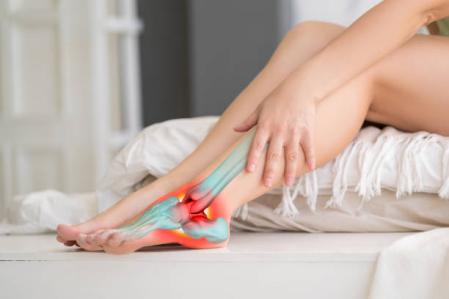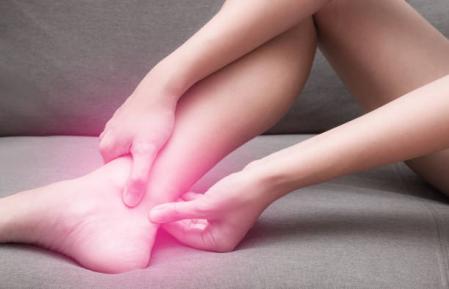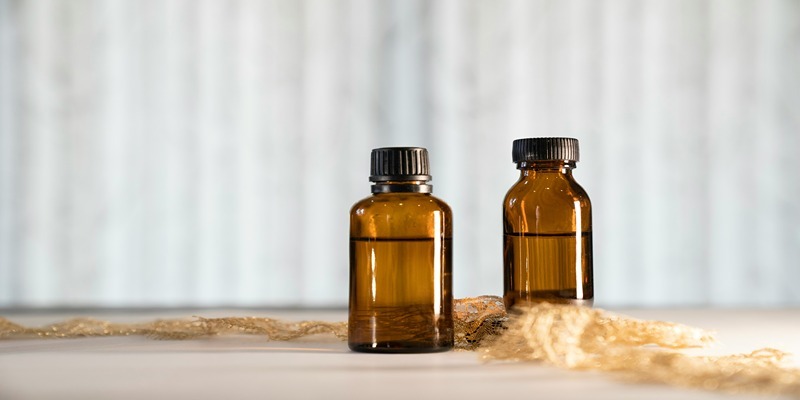What is Achilles Tendinitis?
Nov 19, 2023 By Madison Evans
Are you a runner or an athlete? If so, then the chances are that you've heard of Achilles tendinitis—an often painful and annoying condition characterized by inflammation of the band of tissue connecting your heel to your calf muscle. Perhaps you’ve experienced it yourself or know someone who has suffered from this debilitating injury. In this blog post, we'll explore what Achilles Tendinitis is all about: its causes, symptoms and treatment options available for helping to reduce pain and enhance healing. We'll also dive into how athletes can prevent developing this condition in the first place.
Common Symptoms of Achilles Tendinitis:

Here is, a list of common symptoms associated with Achilles tendinitis:
- Pain near the back of your heel when you press on or move it.
- Sharp pain that increases when you exercise or put pressure on the affected tendon.
- Tenderness, stiffness and swelling in the area around your heel.
- Difficulty moving the affected area.
How to Treat Achilles Tendinitis?
If you suspect that you have Achilles tendinitis, then it is important to seek medical attention as soon as possible in order to begin treatments. Treatment options may include home remedies such as rest, icing the area and taking over-the-counter medications for pain relief. Your doctor may also recommend physical therapy or a custom orthotic to help reduce stress on the tendon. In severe cases, surgery may be recommended to repair or even replace the damaged tendon.
Treating Achilles Tendinitis
Fortunately, the inflammation and pain associated with Achilles tendinitis can be treated in a variety of ways. Here are some treatment options to consider:
● Rest your tendon by reducing or avoiding activities that aggravate it. Wear supportive shoes and orthotics when engaging in physical activity.
● Apply an ice pack for 15 to 20 minutes every few hours. This will help reduce pain and swelling.
● Stretch your Achilles tendon each day. Focus on stretching the calf muscles using stretches such as standing calf raises or Seated Calf Raise.
● Invest in a quality pair of shoes that offer support and cushioning, especially if you are involved in activities like running or sports.
● Take over-the-counter anti-inflammatory medications such as ibuprofen to help reduce pain and swelling.
● See your doctor for a cortisone injection, which can help provide relief from the pain associated with Achilles tendinitis.
Risk Factors for Developing Achilles Tendinitis:

Besides a lack of preventive measures, there are several risk factors that can increase your chances of developing Achilles tendinitis. These include,
- Age (as tendons become weaker with age)
- Gender (men are more likely to experience this condition due to their greater participation in sports and physical activities)
- People who have tight calf muscles or flat arches in their feet may also be more prone to Achilles tendinitis.
When to See a Doctor for Achilles Tendinitis?
If pain persists despite the above treatments, it's important to see a doctor right away. A physician can diagnose Achilles tendinitis and rule out any other possible causes of pain. Your doctor can also recommend additional treatments, such as physical therapy or steroid injections, depending on your condition.
It's also important to seek medical attention if you experience sudden or severe pain in your heel or calf area, as this may be a sign of an underlying condition such as a torn muscle or ligament.
Conclusion:
Achilles tendinitis is an inflammation of the Achilles tendon that can cause significant pain and discomfort. Treatment options may include rest, medications, physical therapy or in severe cases surgery. It is important to take preventive measures such as stretching before physical activity and wearing proper shoes with shock absorption to avoid further injury. Taking the right steps for both prevention and treatment can help keep your tendons healthy and free from injury. It is essential to seek medical attention if you experience any of the symptoms associated with this condition. With proper care and treatment, you can reduce your risk of Achilles tendinitis and its associated pain.
-
 Jul 09, 2024
Jul 09, 2024Natural vs. Refined Sugars: What You Need to Know
Discover the difference between natural and refined sugars, their health impacts, and practical tips for reducing refined sugar intake for a healthier lifestyle.
-
 Jul 31, 2024
Jul 31, 2024Top Azelaic Acid Serums for Clear Skin
Explore the best azelaic acid serums to reduce acne and hyperpigmentation for clearer skin.
-
 Oct 10, 2023
Oct 10, 2023Understanding Bladder Cancer: Key Symptoms and Early Warning Signs
An in-depth look at bladder cancer, including key symptoms, early warning signs, common risk factors, recommended actions upon diagnosis, and potential treatment options.
-
 Dec 03, 2023
Dec 03, 2023What are the Symptoms of Degenerative Disk Disease?
Degenerative disk disease (DDD) is a condition that affects the spine and can be incredibly painful, restricting mobility and making it difficult to part take in regular activities. Even if you’re not experiencing any pain or other symptoms yet, it is important to understand what types of symptoms may occur so you can recognize them when they arise.
